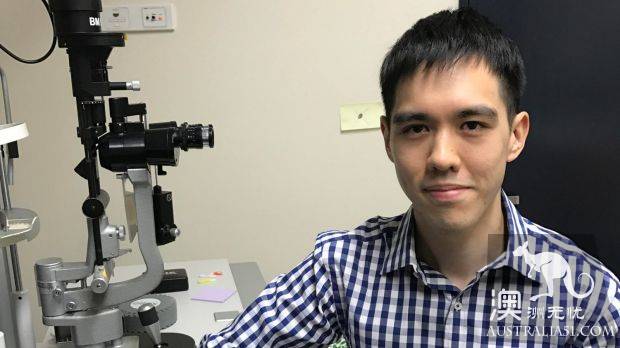
The writer is a senior ophthalmologist at Brisbane Public Hospital and an assistant lecturer at Kunzhou University School of Medicine. Original published on TheAge.
I can't figure out how many careers, when you introduce yourself to your clients, apologize, but this is one of them.
My profession is an ophthalmologist, that is, I am a senior junior doctor. After graduating from high school, it took me more than 10 years to become me now. There is only one co-worker working together in an ophthalmology clinic in a public hospital.
Most of our patients are GP, emergency doctors, optometrists where introduced, but also to find their own. Some patients suffered from chronic red eye disease for months but could not find the cause, others got up in the morning and blinded with one eye, while others were brought from the workplace by ambulances.
My typical day-to-day job is like this:
The first patient in the morning came for a review. He was treated well earlier this week for corneal ulcer infection caused by wearing night contact lenses.
My second patient also came for a review. This is uveitis, a situation in which the immune system mistakenly attacked eye tissue, and her treatment worked well. I wrote her a treatment plan and arranged to see her again in two weeks.
These two consultations took only 10 minutes, and I secretly hoped that all the patients behind them would be so quick. But for patients, in order to meet a 10-minute doctor, they need to take a morning off, drive to the hospital, line up at the front desk, wait for the first check-up at the nurse's office, and then wait in line to see me. They usually go to the pharmacy on their way home. The whole process took up hours of the day,
The sad nurse came to my room to tell me that a newly arrived patient was complaining about blurred vision, headaches and vomiting. I had to give her priority over the room full of patients at 9: 00 in the morning. I examined the mother of the two children and found that her visual nerves, the two "data lines" linking the brain and the eyeball, were red and swollen, and looked angry. I can't let this patient go until I make sure it's not caused by a brain tumor. In order to give her a complete examination, I need to intubate immediately, arrange an emergency blood test, request a CT scan for the day, and arrange for her to meet with a neurologist. All this took more than an hour, while the patients who had come early were still waiting. At this point, the receptionist reminded me that I had three job insurance certificates to fill in, and a patient on the other side of the phone was waiting for me to tell him the test results.
I continued to see my patient and apologize to everyone before introducing myself. Almost everyone accepts that a small number of people are impatient and understandably suffering from obvious pain during the hours they wait. Late in the afternoon, I haven't had lunch, but some patients have been waiting for five hours. Well, I can have a big dinner when I get home at 8: 00. I lost 2 kilograms last month.
The nurse sent in three medical records, and the patients couldn't wait to leave. A patient's letter of recommendation says he has a double image and a squint. If it was caused by an aneurysm, it could rupture in a matter of days and he would die. I called the patient and nobody answered. I left a message on his cell phone.
It is usually impossible to follow the plan, because medicine is so complex that a patient's needs cannot be met in a fixed period of time. High-quality care comes first, which inevitably means serious, unexpected problems that take up more time and get us farther and farther from the expected schedule. While we are as punctual as possible, emergency and high-priority cases cannot be avoided, while there are a lot of communication advice with specialist departments. Many patients are complex and require the intervention of multiple doctors, who are only part of the entire chain of diagnosis and treatment. Punctuality requires that everyone who does not meet frequently can do their work with high quality, including front desk, nurses, pharmacists, radiologists, and so on. Any delay in any of these links will lead to delays in other links.
I can try to see every patient as soon as possible and make everyone happy, but it's not safe. Errors will occur and details will be omitted. Negligence in medical care can lead to pain and even life.
So the solution is that when we delay frequently, unfortunate patients have to wait.
I'm sorry to have kept you waiting so long, I'm sorry to make you pay expensive parking fees and fines, and I'm sorry to have you take the whole day off to see me. But your patience allows me to work safely and hopefully all the waiting is worth it.